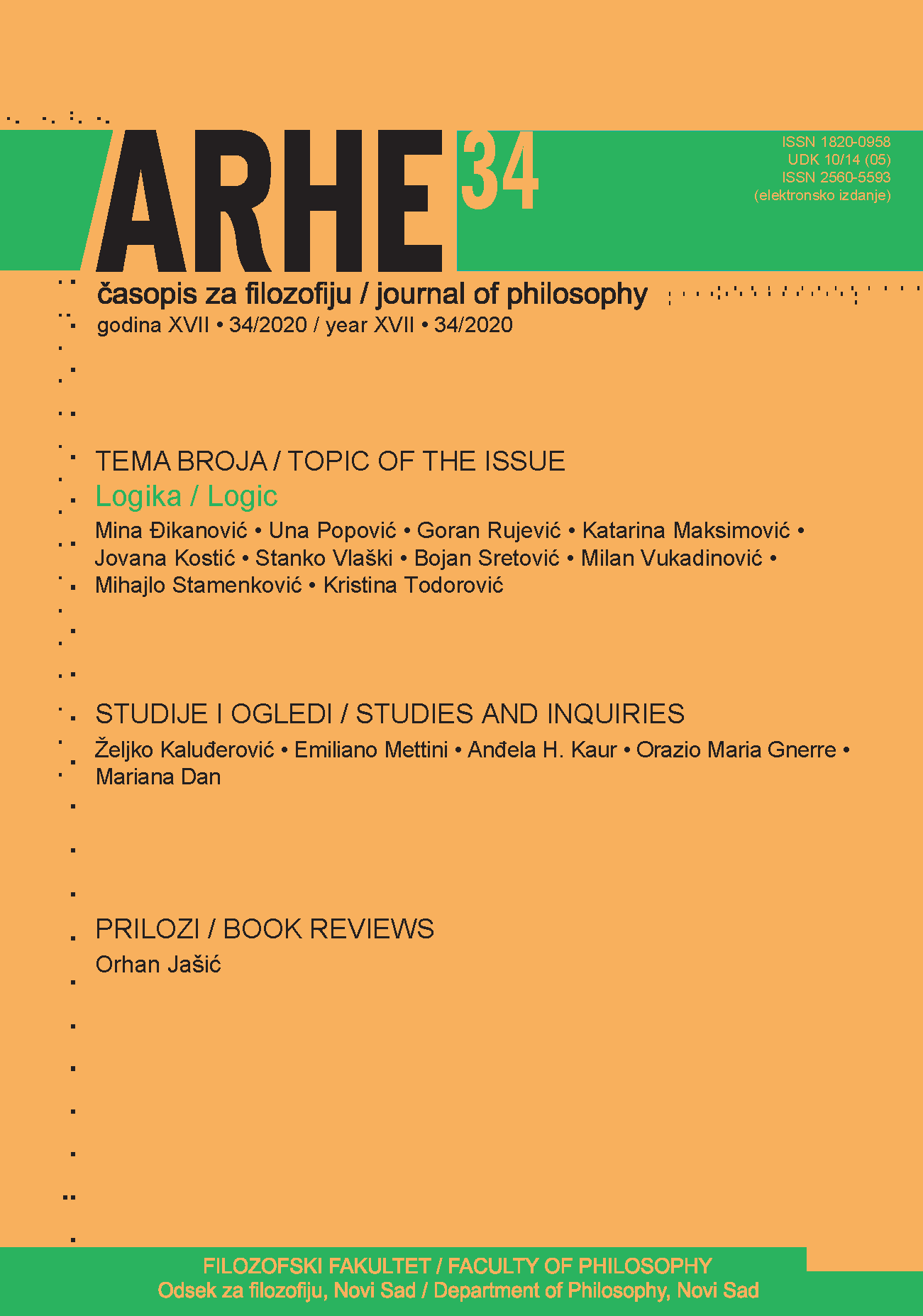LOGIČKI PROBLEM USVAJANJA JEZIKA
Glavni sadržaj članka
Apstrakt
Stav prema logičkom problemu usvajanja jezika opredeljuje lingvističko istraživanje kao takvo za tip paradigmatskog barjaka pod kojim će ono nadalje nastupati. Pre svake nauke samo logičko ispostavlja se kao prethodnica njene konstitucije, kao seme njene ukupne metodološke rasejanosti. Stoga je vrlo važno steći jasan i sveobuhvatan uvid u srž dotičnog problema – u okviru lingvistike. Autor nastoji izolovati samu logičku strukturu problema usvajanja jezika. Načini kojima se u literaturi samo donekle preklapaju različita podvajanja logičkog problema usvajanja jezika čine dodatnu poteškoću za razumevanje strukture koja je ovde na delu. Suočen sa tom poteškoćom, autor nalazi sintezu jezgra dotične logičke strukture – u nezaobilaznoj okolnosti gramatičke dvosmislenosti pozitivnog inputa.
Detalji članka
Reference
Fodor, J. D., C. Crowther, „Understanding Stimulus Poverty Arguments”, The Linguistic Review 19 (2002): 105-145.
Gentile, G., „Language Acquisition and Universal Grammar“, Tesi di Laurea in Lingue e Letterature Straniere Moderne, Università degli Studi di Padova (Facoltà di Lettere e Filosofia) 1995.
Hausser, R., „What if Chomsky were right?“, Journal of Child Language 31(4) (2004): 919-922.
Hendriks, P., „The Problem with Logic in the Logical Problem of Language Acquisition“, Proceedings of the Annual Meeting of the Cognitive Science Society 22 (2000): 1-6, https://escholarship.org/uc/item/9gj1d1hw, 22.07.2020.
Kirby, S., „Bias, innateness and domain specificity“, Journal of Child Language 31(4) (2004):927-930.
Laurence, S., E. Margolis, „The Poverty of the Stimulus Argument“, British Journal for the Philosophy of Science 52 (2001): 217-276.
Li, P., „Overgeneralizations, competition, and recovery: solving the logical problem with positive evidence“, Journal of Child Language 31(4) (2004): 931-933.
MacWhinney, B., „A multiple process solution to thelogical problem of language acquisition“, Journal of Child Language 31(4) (2004):883-914.
MacWhinney, B., „Rethinking the Logical Problem of Language Acquisition“(2001 ), http://citeseerx.ist.psu.edu/viewdoc/summary?doi=10.1.1.11.6868, 22.07.2020.
MacWhinney, B., „The (il)logical problem of language acquisition“, Proceedings of the Fifteenth Annual Conference of the Cognitive Science Society (1993): 61-70.
Moskovljević Popović, J., „Prve reči i kako ih prebrojati: teorijsko-metodološki problemi u proučavanju ranog leksičkog razvoja“, Putevi reči. Zbornik u čast D. Gortan-Premk (ur. R. Dragićević), Filološki fakultet Univerziteta u Beogradu 2017: 143-156.
Miličević Petrović, M., J. Grubor, „Input i postignuće u usvajanju drugog jezika“, Anali Filološkog fakulteta 31(1) (2019): 183-212.
Pinker, S., „Clarifying the logical problem of language acquisition“, Journal of Child Language 31(4) (2004): 949-953.
Weimer, W. B, „Psycholinguistics and Plato's paradoxes of the Meno“, American Psychologist 28(1) (1973): 15-33.
